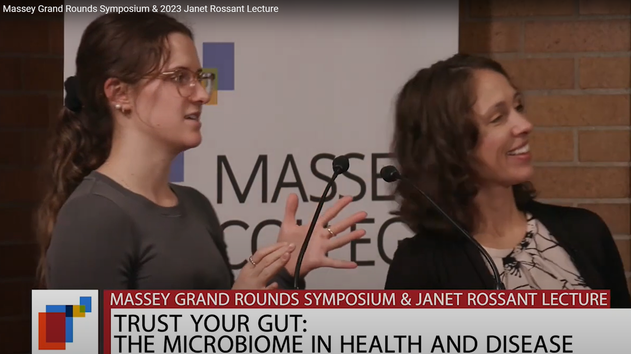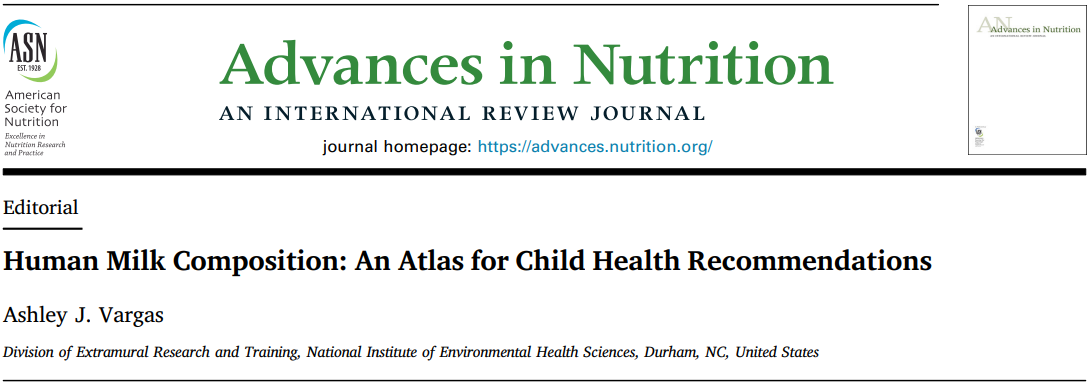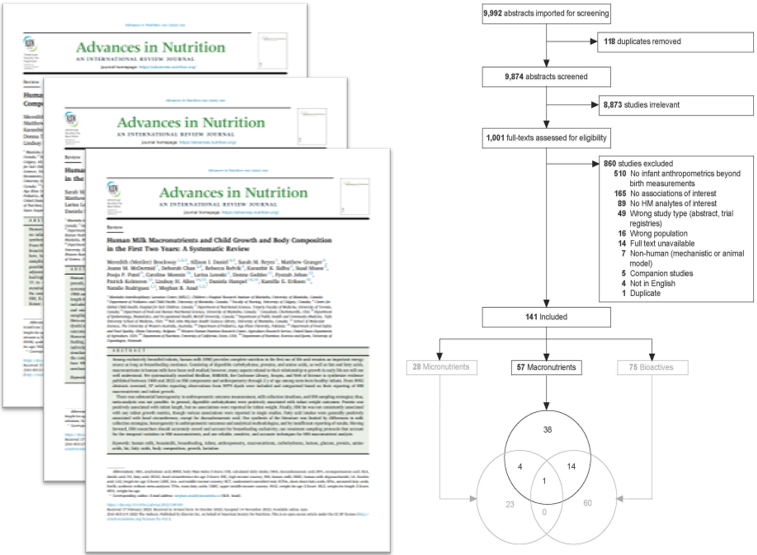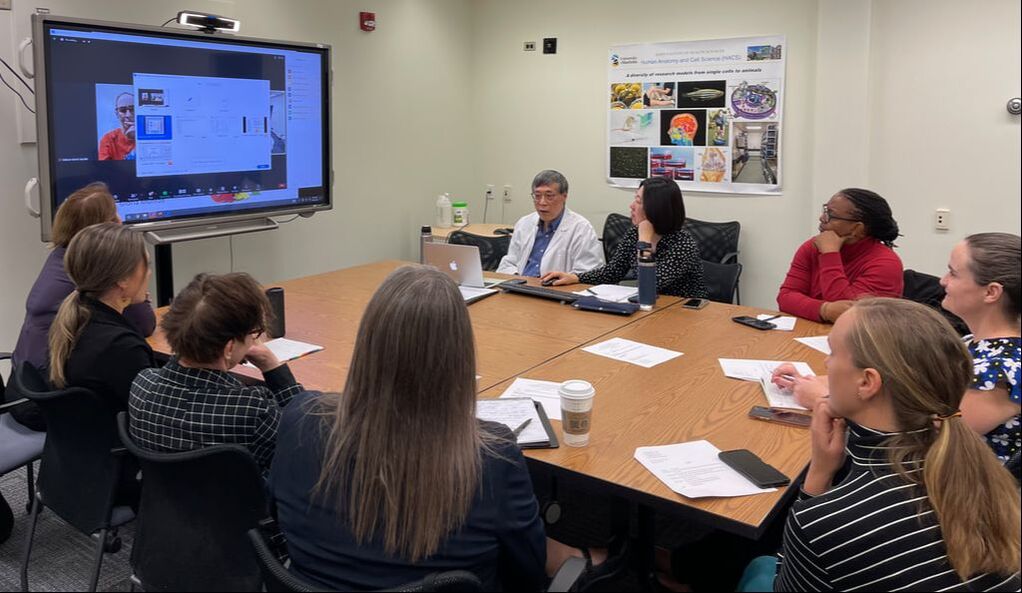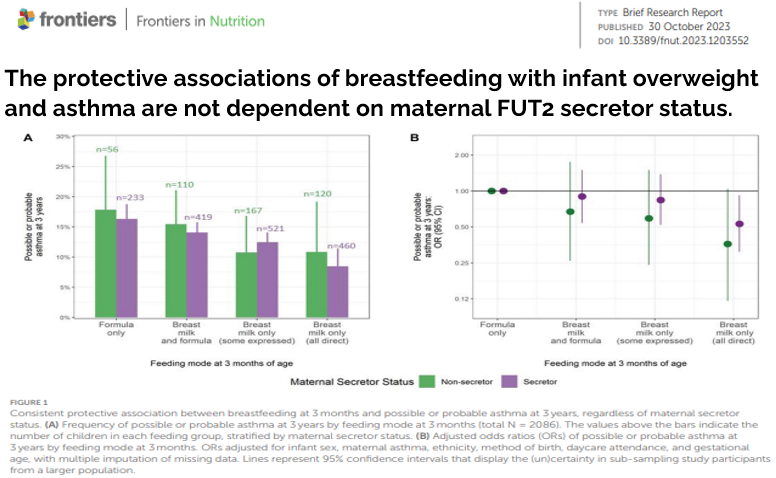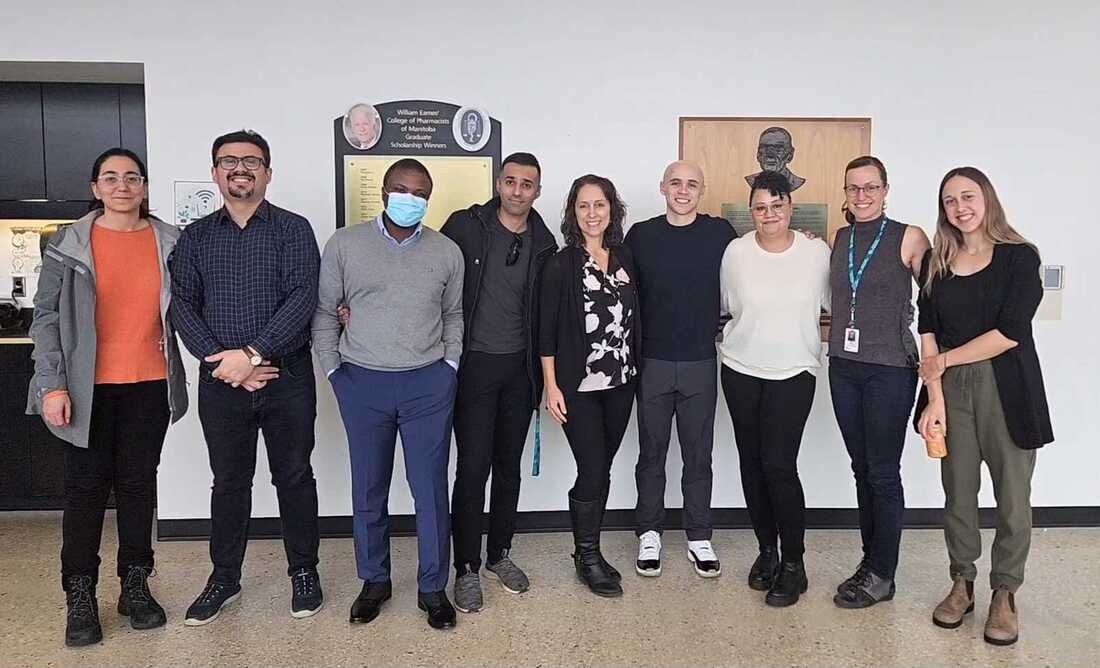|
MILC co-director, Dr. Meghan Azad, was featured on the Massey Grand Rounds Annual Symposium titled "Trust you Gut: The Microbiome in Health & Disease" in 2023. Dr. Azad was awarded the Jannet Rossant Lectureship and spoke about "Modelling Milk & Microbes: new approaches to understanding how breastfeeding supports the infant microbiome and lifelong health". View the full symposium here.
Drs. Katherine Kearns, Christina Raimondi, Meghan Azad, and Joanne Hamilton have received a grant to develop Open Education Resources focused on breastfeeding and lactation medicine. These interactive resources will be used to train medical students in Manitoba but will be Open Access and available to anyone. Read more and see which other U of M teams are creating resources at UM News.
Recent MILC lab research is being recognized internationally: led by MILC Co-Director Meghan Azad, the IMiC Consortium published a large systematic review “Human Milk Composition and Child Growth and Body Composition in the First 2 Years: A Systematic Review". The work was featured by the American Society for Nutrition and highlighted by Dr. Ashley Vargas of the US National Institutes of Health in a commentary "Human Milk Composition: An Atlas Child for Child Health Recommendations". Follow the links to read more!
New Paper Series: Human Milk Composition and Child Growth and Body Composition in the First 2 years.12/6/2023
MILC Club members have published a large systematic review involving over 25 authors who screened nearly 10,000 papers about human milk and child growth. Published in Advances in Nutrition, the project “Human Milk Composition and Child Growth and Body Composition in the First 2 Years: A Systematic Review” explores current evidence to help us better understand the link between human milk components and child growth from birth to age 2 years. Due to the large number of research studies in this area, results have been organized into three manuscripts dedicated to (1) human milk macronutrients, (2) human milk micronutrients, and (3) human milk biologically active (bioactive) components. This study was led by MILC Co-Director Dr. Meghan Azad together with former MILC postdoctoral fellows Dr. Merilee Brockway and Dr. Sarah Reyes. Read the full series here: Bioactive Components [PDF], Micronutrients [PDF], and Macronutrients [PDF].
On October 20, 2023, the Moms in Motion (MIM) Research Team, led by MILC Club Member Dr. Garry Shen, convened a meeting to discuss recent breastfeeding research findings, progress, and initiatives in Manitoba. Attendees included representatives from the University of Manitoba Departments of Pediatrics and Child Health, and Obstetrics, Gynecology and Reproductive Science, the First Nation Health and Social Secretariat of Manitoba, the Winnipeg Breastfeeding Centre, the Manitoba Baby Friendly Initiative, and Shared Health. Dr. Shen and colleagues shared results from their new study showing that discontinuation of the lactation consultant program at some Manitoba hospitals was associated with a decline in breastfeeding initiation, particularly among First Nations and remote-living families. The group also discussed plans for a provincial breastfeeding strategy beyond hiring lactation consultants and will continue to meet periodically to advance this initiative.
THRiVE Lab members published "The Protective associations of breastfeeding with infant overweight and asthma are not dependent on maternal FUT2 secretor status" in Frontiers in Nutrition. This article follows up on previous THRiVE research to address the question: is breastmilk from non-secretors (a genetic trait carried by ~20% of people) inferior to secretor milk? By re-analyzing data showing beneficial associations between breastfeeding and infant growth as well as childhood asthma, the new study demonstrates that these relationships persist regardless of maternal secretor status. The findings suggest that secretor and non-secretor mothers can equally promote respiratory health and infant growth through breastfeeding. The study was led by MILC co-director, Dr. Meghan Azad together with lab members Dr. Melissa Manus and Stephanie Goguen. Read the full article [PDF] and check out Dr. Azad's [Tweetorial] on Twitter.
Narges Khodabandehloo, Dr. Payam Peymani, Rilwan Azeez, Affan A. Sher, Dr. Meghan Azad, Spencer Ames, Natalie Rodriguez, Dr. Larisa Lotoski and Sarah Turner (left to right) Big congratulations to Spencer Ames, an MSc student in the THRiVE lab, for successfully defending his thesis about "Investigating the relationship between infant feeding practices and inflammation-associated biomarkers of one-year-old infants in the CHILD cohort study". It's been great to see Spencer's growth and success as a researcher in the THRiVE Discovery Lab. We're thankful for all he's contributed to the lab and wish him the very best in his future endeavors!
MILC Club members came together to celebrate National Breastfeeding Week (October 1 - 7) with an information booth located at the Brodie Centre, University of Manitoba, and HSC Women's Hospital.
MILC Club Members once again shared their insights on breastfeeding to support National Breastfeeding Week 2023. This annual celebration takes place from October 1 to 7 each year. Explore ways to support breastfeeding by visiting the website: breastfeedingcanada.ca.
MILC Club member Dr. Katherine Kearns was interviewed in French on CBC Radio Canada for World Breastfeeding Week (August 1-7). She discussed the overwhelming evidence that breastfeeding reduces the risks of many diseases for both baby and mother, and emphasized that governments at all levels around the world need to protect the rights of working parents to breastfeed. She also went over some myths about breastfeeding, issues with feeding in public, and what we can all do to support families in giving this ideal nutrition to their babies. Listen to the full interview here.
|
MILC News
|

